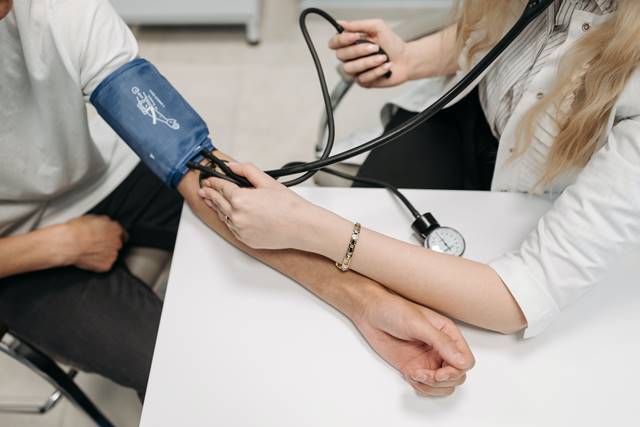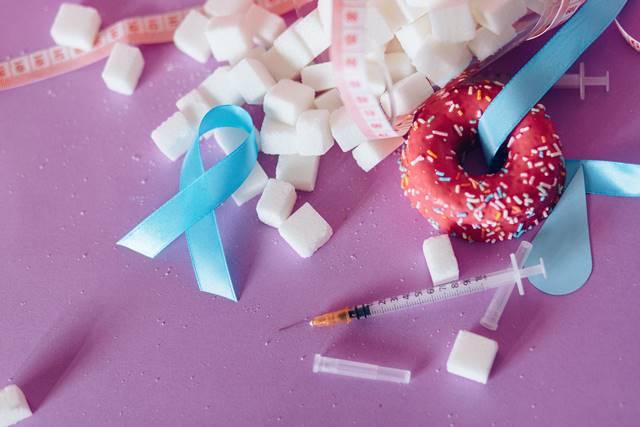Posts Tagged ‘does sugar raise blood pressure quickly’

Can Blood Sugar Affect Blood Pressure?
Yes! Most definitely.
To understand the entire process and the associated traits, we must first understand what blood sugars are in the human body and their functions.
Also referred to as blood glucose, these constitute the significant sugars found in the bloodstream. They are usually the major energy sources within the human cells, among other sugars and molecules like ketone bodies.
Blood sugar levels are usually of utmost significance to individuals, given that too low levels could prompt varied health conditions, including hypoglycemia. At the same time, too high levels could lead to hyperglycemia and associated symptoms.
The human body is thus equipped with sensory cells all over capable of detecting changes in blood glucose levels and effecting subsequent changes. For instance, if the blood glucose level goes above the optimal levels, the condition will be detected in the pancreas prompting the release of insulin hormone, which, in conjunction with other hormones, rectifies the surge.
Similarly, pancreatic cells will also detect low blood glucose levels, prompting the release of glucagon and even catecholamine hormones that collectively work to fix the condition by increasing blood glucose levels. The healthy average blood glucose level thus typically ranges between 70 and 120 mg/dL.
Extreme blood glucose levels are usually associated with the different types of diabetes. However, to advance to the diabetes stage must imply that the blood glucose level detection system, the alpha and beta cells of the pancreatic islets of Langerhans, and the associated hormones are functionally impaired.
Hence, individuals with diabetes don’t often lose the ability to regulate blood sugar levels but rather the cells and systems involved.
How Your Body Regulates Blood Pressure
Despite near similar processes exploited in maintaining blood glucose and blood pressure levels, regulating blood pressure is often more complicated and critical. For instance, the body usually regulates blood glucose levels by making more blood sugars or exploiting alternative energy sources.
However, there is no way of making more or breaking down blood instantly within the body to regulate blood pressure. In fact, the body cannot make more or less ‘blood pressure’ like it does blood glucose. As such, blood glucose regulation is often much simple and achievable, unlike blood pressure regulation for the human body.
Take, for example, an individual with low blood pressure from low blood volume cannot instantly rectify their condition as more blood would be needed, something the body can’t manage to manufacture fast enough as it is with blood glucose. These individuals can suffer massive health implications like incapacitation and long-term brain and body harm. This hints at the severity and dangers associated with blood pressure imbalances.
Therefore, due to the limited blood pressure regulation options, the body often utilizes the hormones used in blood sugar regulation, catecholamine/adrenalin, and other hormones to facilitate the process. As such, if you have low blood pressure, the body detects this and releases catecholamines. These subsequently tighten up the blood vessels through vasoconstriction, making them narrower and thus more challenging for the heart to pump blood through the arteries, ultimately raising the blood pressure levels.
On the other hand, high blood pressure usually warrants reducing the arterial pressure build-up by lowering the overall blood volume in the vessels. This is often achieved through several avenues.
First, some of the blood glucose regulating hormones like insulin stimulate nitric oxide production by the endothelial cells, which initiates the vasodilation/expansion of the blood vessels. This subsequently reduces the arterial pressure and the pressure against the heart.
Expanded vessels also release water through diuresis in the kidneys, further lowering blood volume and thus blood pressure. These are just some of the few standard blood pressure regulation processes.
Similar to diabetics, imbalance in blood pressure prompts conditions like hypertension and hypotension. These individuals often can regulate their blood pressure but have impaired sensors and body systems responsible for controlling blood pressure levels.
How Blood Sugar Affects Blood Pressure
The blood sugar and blood pressure regulation systems are all interconnected, given that they depend on similar body hormones to affect changes in the body. For instance, as indicated above, insulin, a hormone responsible for regulating blood glucose, is also associated with stimulating nitric oxide production in blood vessels.
It usually blocks the body’s ability to make nitric oxide which is significant for vasodilation of blood vessels and decrease in blood pressure. As such, if an individual with diabetes is utilizing insulin doses to facilitate blood glucose regulation, they should be aware of the underlying risks of high blood pressure, given that the body’s ability to lower blood pressure via nitric oxide production would be severely impaired.
Catecholamine hormones that regulate low blood pressure would also impact blood sugars by immensely raising the levels given the interconnected responses.
The same goes for low blood sugar individuals whose body systems utilize catecholamines to regulate the levels, subsequently prompting high blood pressure levels. This is a clear indication of how low blood sugar or low blood pressure could influence the rise/decline of the other.
It is also important to note that some blood pressure and blood glucose regulation medications may override the body’s natural protection systems and trigger these processes.
Can Diabetes Cause High Blood Pressure?
Diabetes and high blood pressure (hypertension) often go hand in hand as individuals suffering from one are often likely to suffer from the other. An individual with diabetes is thus often twice as likely to have high blood pressure as opposed to healthy folks.
The high blood sugar levels among diabetes patients can also often damage blood vessels and nerves of the heart, and these, when coupled with high blood pressure and associated symptoms, often result in increased strain on the heart muscles and blood vessels. This further increases the risk of heart/cardiovascular disease and even stroke.

As such, diabetes and hypertension often occur comorbidly, either at the same time or simultaneously. This is usually evident among populations as nearly one in every three American adults have hypertension.
Subsequently, two out of every three patients with diabetes usually have high blood pressure or take respective blood pressure regulating prescription medications. Further reports also indicate that diabetes often doubles one’s likelihood of dying from stroke or heart disease compared to those without diabetes.
Experts in the field also believe that both the conditions, diabetes and high blood pressure, often have common potential causes and risk factors. They have thus been linked to;
- Oxidative stress
- Insulin resistance
- Inflammation
- Obesity
Essentially, diabetes is associated with elevated blood sugar levels. High glucose levels often stress the vessels causing damage, narrowing, and accumulation of plaque such as cholesterol and fats within the vessel walls. These plaques further narrow the vessels making it difficult to pass adequate blood through. As such, the heart has to pump even harder to compensate for the narrowing leading to high blood pressure throughout the body.
Subsequently, the plaque formation and build-up due to the blood sugar levels further causes atherosclerosis, a condition which, when coupled with the high blood pressure, increases the risk of heart attack, stroke, and peripheral arterial disease for the associated individual.
Does Sugar Raise Blood Pressure Quickly?
People commonly associate salt with high blood pressure despite sugar also often playing a crucial role in blood pressure regulation. For instance, eating too much sugar may often inhibit nitric oxide production, eliminating vasodilation. This leaves an opportunity for vasoconstriction, which can result in high blood pressure. As such, sugar, just like salt, is also among the leading causes of high blood pressure.
Take fructose, for example, a simple sugar, which, upon ingestion, raises uric acid levels in the blood. High uric acid concentrations often inhibit nitric oxide production, which further eliminates flexibility and vasodilation capabilities of the blood vessels, prompting a rise in blood pressure.
Subsequently, excessive sugar consumption often leads to weight gain, and continued weight gain results in obesity. Since obesity is a major contributing factor to high blood pressure, increased sugar consumption thus raises blood pressure above optimal levels.
Sugars, more so added sugars, like table sugar and syrup, used in food preparation and processing have also been realized to contribute significantly to hypertension. This is because they are usually more harmful to human bodies, unlike the naturally occurring sugars in fruits and milk. Therefore, increased amounts above recommended range could result in high blood pressure.
Furthermore, hyperinsulinemia, a condition depicted by higher-than-normal levels of insulin in the blood, also contributes to high blood pressure if left untreated. Studies have actually shown that nearly half of high blood pressure patients often suffer from hyperinsulinemia or glucose intolerance.
The body often uses glucose for energy. However, with insulin resistance, associated individual systems often fail to respond to insulin as they should, prompting overproduction of the hormone to compensate for the high blood glucose and low energy levels. High insulin is usually associated with hypertension and together greatly increases the risk of heart disease and diabetes.
Bottom line
Diabetes and high blood pressure are among some of the diseases claiming many lives globally. As such, individuals should always endorse frequent health checkups to determine their status with regard to the conditions. Subsequently, those living with either or both conditions should also invest in a close monitoring program to prevent treatment challenges and prevent unnecessary health complications.



